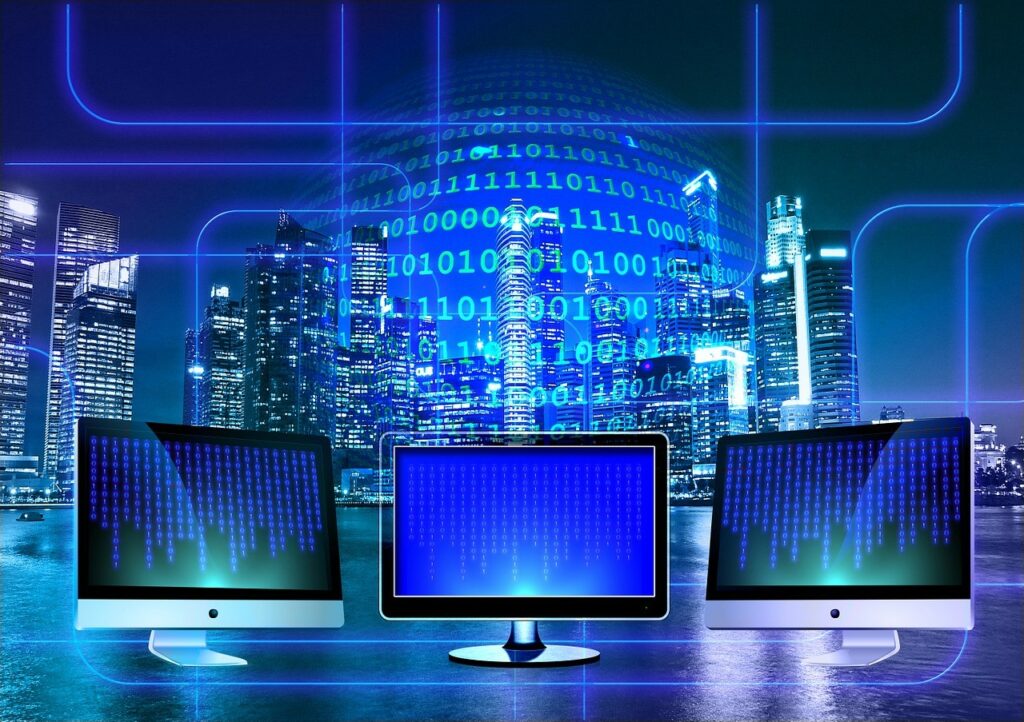
Decentralized Internet? What Is It? (Plus Pros and Cons)
Debates about a decentralized internet have been around since “going online” became a prominent part of most households worldwide. In this guide, we’ll cover what a decentralized Internet is, how it differs from the traditional Internet you may be aware of, and a few pros and cons.
What Is a Decentralized Internet?
A decentralized Internet is an Internet that’s based on a peer-to-peer infrastructure. The idea behind a decentralized Internet is that all data comes from your peers rather than a centralized host. Rather than a single organization controlling the Internet, control is maintained by many users. In a decentralized web, users share data and information through linked devices.
A decentralized internet is:
- Permissionless – No single person controls who can access the Internet.
- Trustless – No user has to trust a third party.
- Open to all – No censorship.
Examples of Decentralization
Some people don’t think that a fully decentralized web is possible. However, it already exists in some companies like Blockchain and Freedom Box. Cryptocurrency is one of the most prominent examples of decentralization. Because there isn’t a physical product, no one person owns the currency. Users can trade, pay for services, and accept payments via cryptocurrency without physical cash present. Web3 is also a decentralized version of the Internet.
Another excellent example of a decentralized program is Usenet. Usenet allows users to share and download news stories while also participating in discussion forums. Usenet has been around much longer than other programs too, and while its use has decreased over the years, it still has a loyal following today.
Centralized vs. Decentralized Internet
Most people use a centralized Internet today unless they use programs like Usenet, making it easy to compare. These are a few of the pros and cons that you can expect between a centralized and decentralized Internet.
The Pros of a Decentralized Internet
Maybe one of the biggest advantages of a decentralized market is that one single user doesn’t control the system. In a centralized market, if the central host fails, all users lose connection to a centralized Internet. This puts all users at a security disadvantage.
In a decentralized Internet, no single point controls the system. This means that even if someone hacks into the system, it doesn’t necessarily mean that they bring the whole thing down. In a centralized market, all data is stored in one place, which could potentially lead to significant consequences if it’s ever hacked. This makes the decentralized Internet more secure.
Some people also prefer decentralized markets because they limit censorship. When one single host controls the market, they ultimately control the information shared. A decentralized market can be especially useful in countries with censorship to ensure residents receive the information they need.
You also get lower fees with a decentralized market. While servers that host programs like Usenet may charge a small fee, the cost is often much lower than that of streaming or Internet services. A centralized market can sometimes be compared to a monopoly. When a single person or entity is in charge, they can charge what they want.
Decentralization can also add more anonymity than a centralized internet allows for. Additionally, users can add on SSL encryption or VPNs to protect their data even further.
The Cons of a Decentralized Internet
Of course, it’s important also to be aware of the potential considerations of a decentralized Internet. One of the biggest downsides of a decentralized Internet is that it can be more difficult to solve if the system is hacked. A data breach typically occurs at multiple points, making it difficult to find all of them. Users can overcome these security difficulties by choosing the right Usenet service.
Another potential downside of a decentralized market is the inability to screen harmful or inaccurate information. A primary criterion for a decentralized market is a lack of censorship.
But, because anyone can share data on a decentralized Internet, it can be difficult to determine what’s real and what’s not. This can lead to conflicting information, and unlike with a centralized Internet, it’s not always easy to check resources.
Shifting to a decentralized Internet also requires separate setup and maintenance fees that you may not currently have with a centralized market. Using Usenet, for example, requires using certain news reader systems, which most people don’t currently have.
Many technology professionals continue pushing for a decentralized internet. While it’s not yet clear whether or not we’ll see a decentralized market anytime soon, in the meantime, we can enjoy programs like Usenet.
With a solid foundation in technology, backed by a BIT degree, Lucas Noah has carved a niche for himself in the world of content creation and digital storytelling. Currently lending his expertise to Creative Outrank LLC and Oceana Express LLC, Lucas has become a... Read more